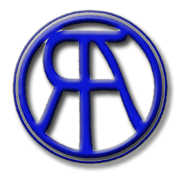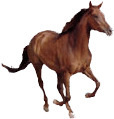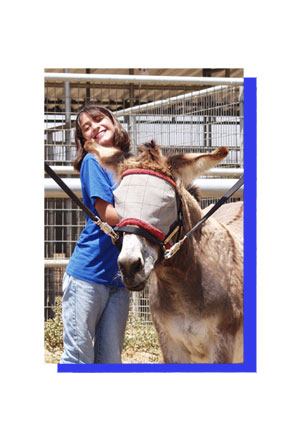

English & Western Riding Lessons
|
|
|
|
|
|
|
|
|
|
|
|
|
|
|
|
|
|
|
|
|
|
|
|
|
|
|
|
|
|
|
|
|
|
|
|
|
|

|
Updated 12/20/2018 |
||||||||||||||||||||||||||||||||||||||||||||||||||||||||||||||
Wear long pants when riding, closed toed shoes with a heel (boots), avoid wearing 1/2 shirts or loose fitting clothes and no pony tails under helmets. Avoid dark color clothes during the summer time. Special riding helmets are provided, however if you would like to purchase a helmet of your own you can find them sold at our local stores, please make sure there are certified. Do not wear SHORTS, capris, gauchos or dangling jewelry. Optional: Gloves, sun glasses and chaps are recommended to protect the rider’s skin and eyes. Clothing Stores: Boot Barn in Temecula, CA has a large stock of Riding Apparel. Beginner Riding Packages- Some include everything and some packages you will have to buy pants separately. New rider packages from state line tack Adults New Rider Essentials SmartPakEquine.com Here are some storses that can be very reasonability priced. Horse.com , State line Tack and ridingwarehouse.com
Ring/riding arena rules are the standards by which a rider conducts him/herself when riding in company in a riding ring, whether showing or during instruction. A well-mannered rider is aware that the practice of these rules is a safety factor for others in the ring/riding arena. 1. When under an instructor’s supervision, it is important to obey that instructor at all times. The instructor can see potential danger and eliminate it before a student is even aware of what is going on. The instructor knows his/her horses so well that he/she can almost anticipate their actions. Thus, when an instructor gives a seemingly senseless command, the student should obey without question. An explanation from the instructor will generally follow. 2. Always keep at least a two horse distance between horses. This will eliminate any fighting that otherwise might develop. 3. Always ride in the same direction as others unless otherwise directed. This eliminates confusion. 4. Always ride your own horse; do not tell others what to do. This is annoying to everyone concerned. The instructor is aware of what is happening, and if he/she feels correction is required, he/she will take care of the matter. 5. Everyone should come to a complete halt if a rider falls off his/her horse. This will calm the loose horse, making him easier to catch, and will eliminate the danger of another horse stepping on the fallen rider. 6. The horse should be walked the first ten minutes to warm him up, and the last ten minutes to cool him out. 7. Always walk the horse in the ring unless otherwise instructed when under instructor’s supervision. 8. Let other riders know when you are approaching and preparing to pass. This will enable them to be prepared to control their horses in case they speed up or kick. 9. Do not use vocal signals to your horse when passing as the horse being passed may think they are meant for him. 10. One should pass another horse and rider to the inside of the ring. Those not passing should ride as close to the rail as possible. 11. When passing, leave a two horse distance between horses to prevent kicking. 12. Do not cut another horse and rider off when passing 13. The main gate should always be closed when mounting and dismounting. 14. When riding in opposite directions always pass left shoulder to left shoulder. 15. All lessons are required to wear a helmet when riding. 16. When opening and closing the arena gate announce “gate open!”. This will prevent a horse from trying to exit the arena. 17. When opening and closing the arena gate always keep one hand on the gate at all times. This will prevent the gate from swinging out and hitting the horse. 1. No smoking: no smoking anywhere. 2. No shouting: speak in a normal tone of voice. Shouting is annoying to horses and has no place in the stable. 3. No running: do not run in stable or around the horses. 4. No gum: no chewing gum when riding or around the stable. 5. No standing behind tethered horses. 6. No riding in or out of the barn. 7. No one may play or be around the haystack. 8. No rock throwing. 9. All students are required to wear a helmet when riding. 10. Any guest riding or handling a horse must sign a liability waiver. (available on our web site) 11. Never enter a stall or take a horse without permission of the owner. 12. Do not feed horses or chickens without permission. Do not feed academy horses by hand. 13. Children should never be left unattended. There are many potential dangers around the stable. 14. Do not litter. 15. No dogs. 16. Do not chase the chickens or try to pet them.
Note: In 2007 we have had 1 muddy or Rainy day lesson. Since we hold lessons in all weather, includes rainy and muddy days here are some great things to remember.
If you have an idea for a muddy or a rainy day activity e-mail me! Rainy and Muddy Day Activities Ideas New Student Evaluation Lesson: For potential students that have taken lessons or have ridden more than a year. Evaluation lessons cost $75.00 cash and can run as long as 3 hours. We will be going over English and Western riding, horsemanship and academics to find where to place you in our levels. Or you may wish not to do a evaluation lesson and go through the levels starting with level 1. Remember you can go through the levels as quickly or as slowly as you need to.
Semesters (Home school students only):
Fall Semester starts September through January, 5 months (22 weeks) Spring Semester starts February through May, 4 months (17 weeks) Summer Semester starts June through August, 4 months (13 weeks) STUDENTS CAN ENROLL IN CLASS AFTER A SEMESTER HAS STARTED
Method of Evaluation (Home school students only): Per Semester □ 25% Laboratory activities □ 25% Level exams, grades 4th - 8th grade one exam, 9th-12th grade two exams. □ 25% Participation □ 25% Worksheets Students that have disabilities will not be subject to this method of evaluation. If you need a letter grade please notify Sarah Hill 3 weeks before the semester ends.Small group lab work, independent study, oral and/or written tests, reading, vocabulary, lectures, study guides, weekly oral quizzes and weekly worksheets. This course is designed for the student interested in learning about horses, understanding the modern day industry, and “hands on” equine experience. Levels of instruction include: grooming tools, colors, markings, breeds, vocabulary, safety rules, feeding, care, anatomy, tack, natural gaits, natural and artificial aids, leg aids, health, equine etiquette, equine history and first aid. The Riding Academy is proud to offer this unique equine science levels program to its students. This program was developed in 1994 for The Riding Academy by Sarah Hill and is updated every January. The goal of this program is to combine Laboratory (“hands on”) and Equine Science to create a complete education. Students progress at their own pace with the focus on developing a solid foundation, both physical and academic. Students will attain practical experience working with horses. Prerequisite- students must be 9 years old and older
I |
||||||||||||||||||||||||||||||||||||||||||||||||||||||||||||||
Copyright 2002-2020, by Sarah Hill "All rights reserved"
30300 Garbani Rd. Menifee, Ca Phone 951-301-9272
